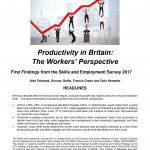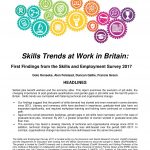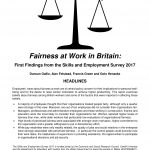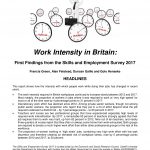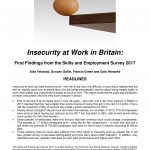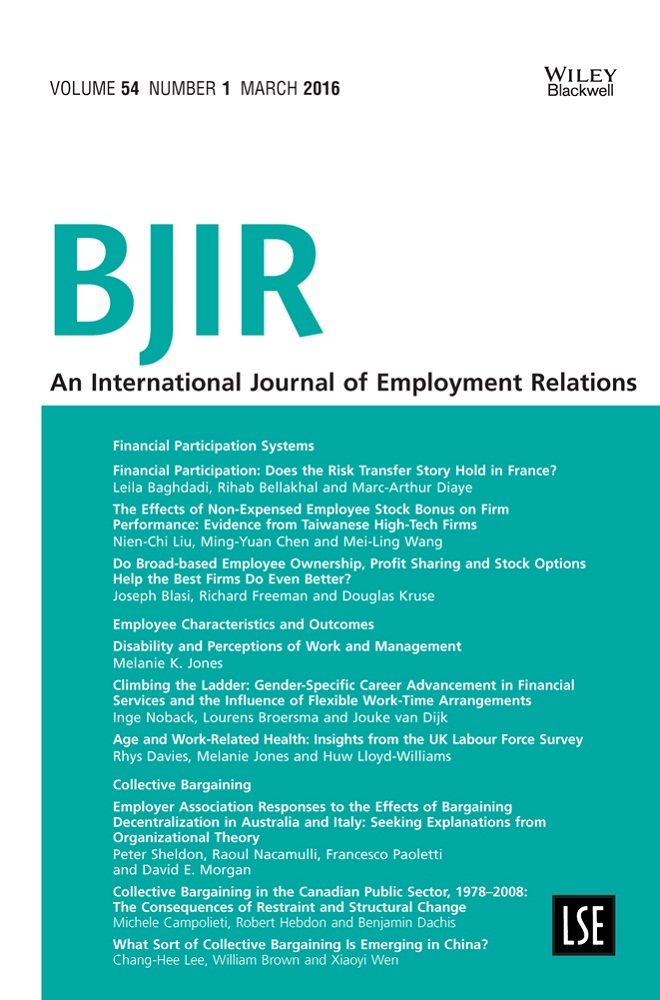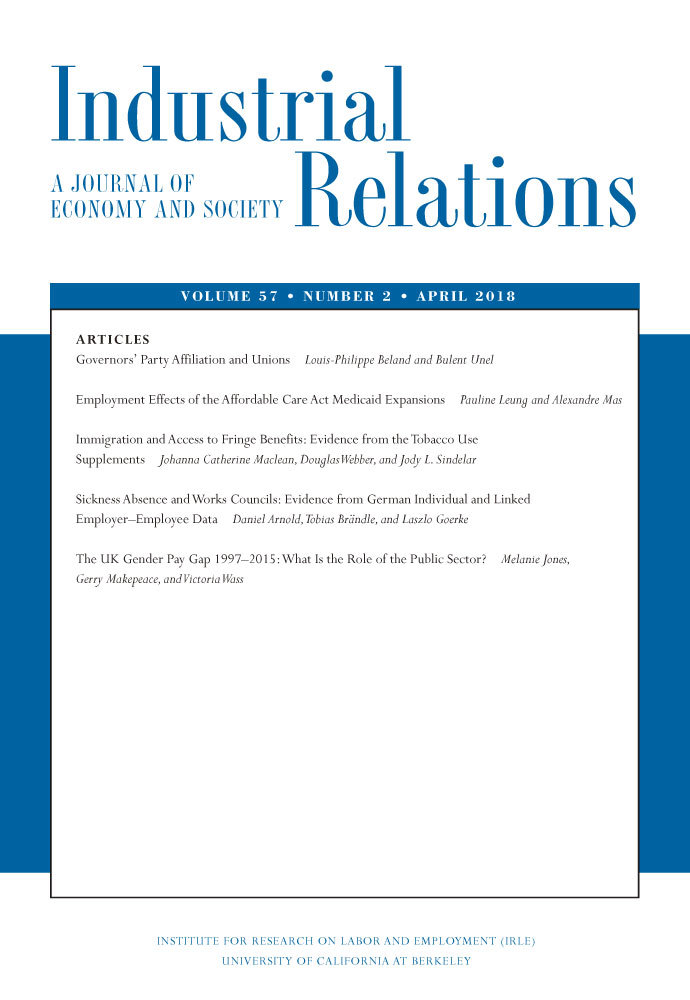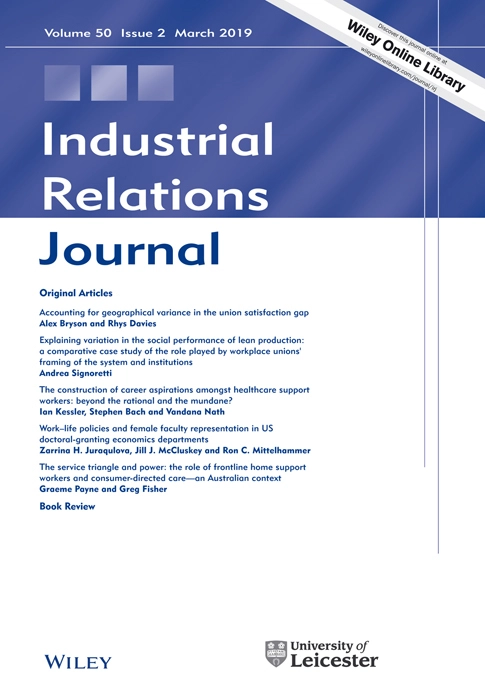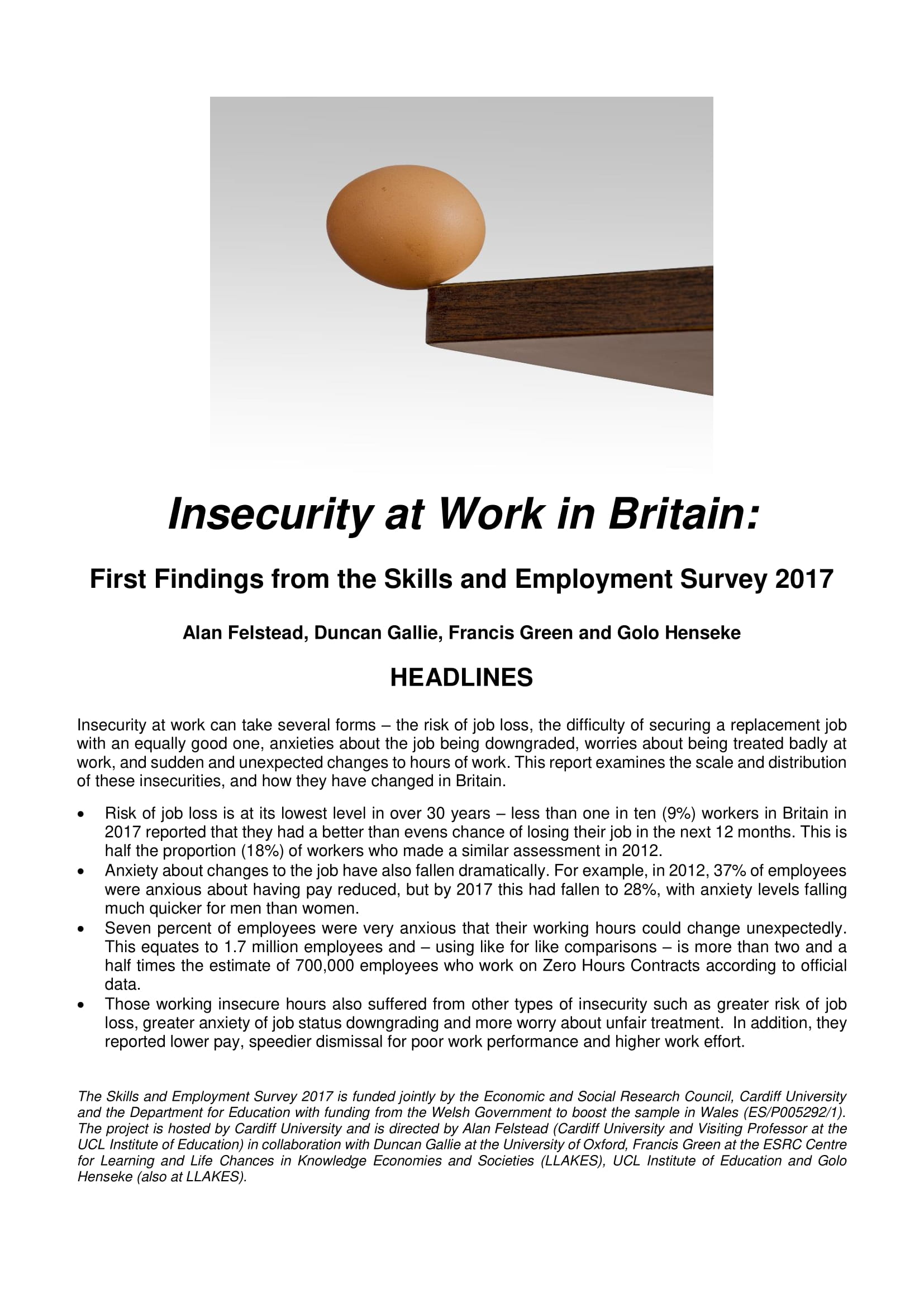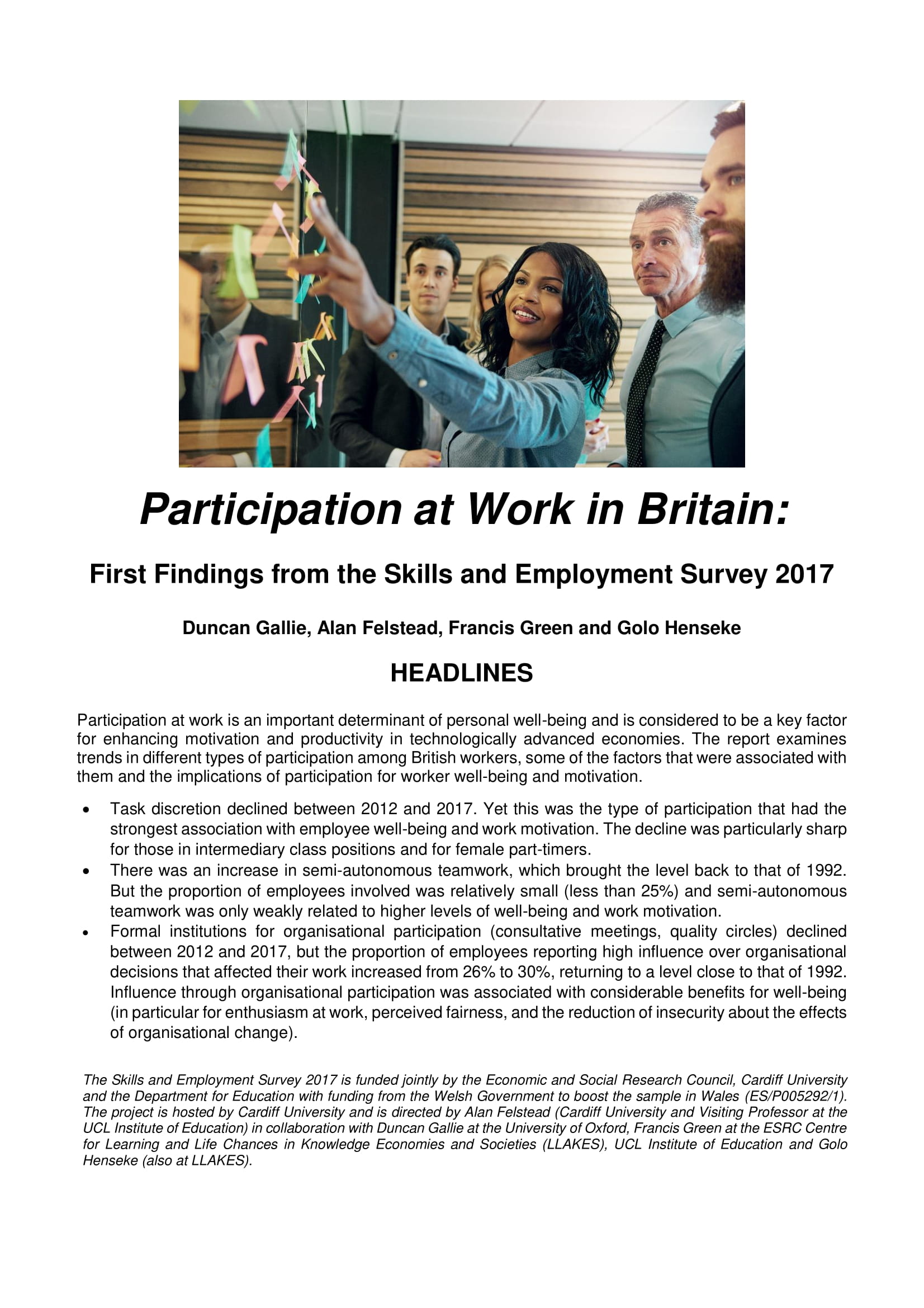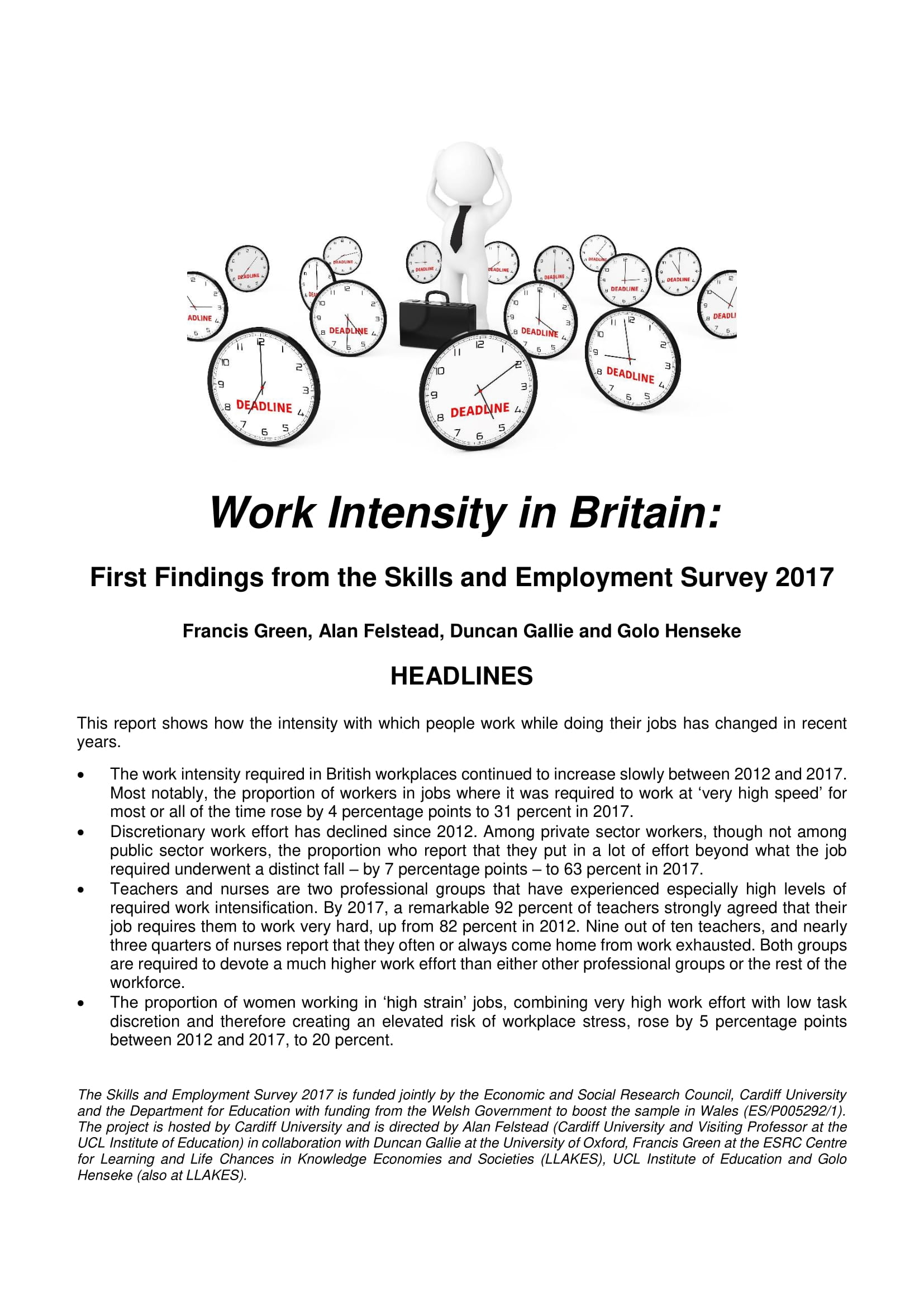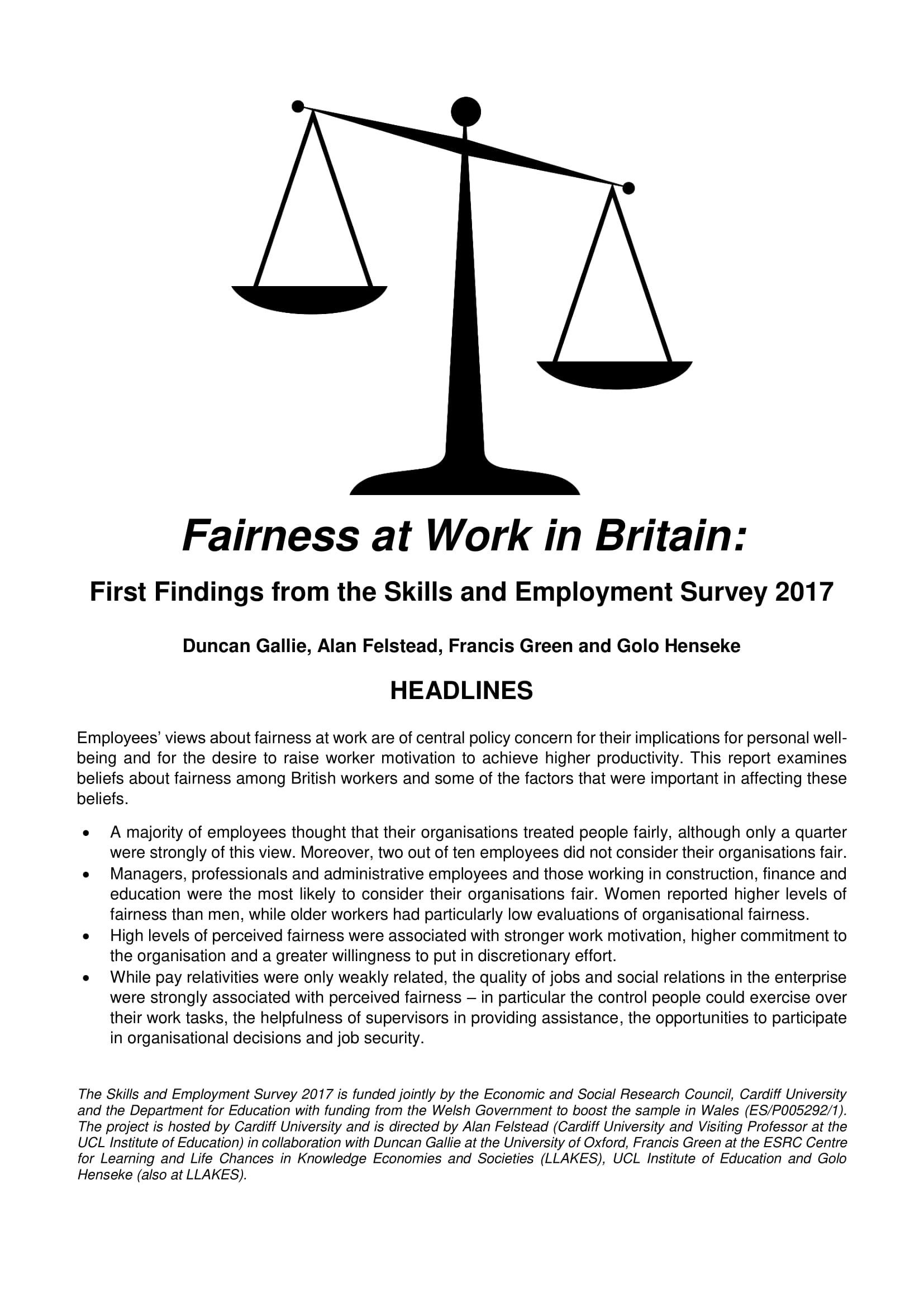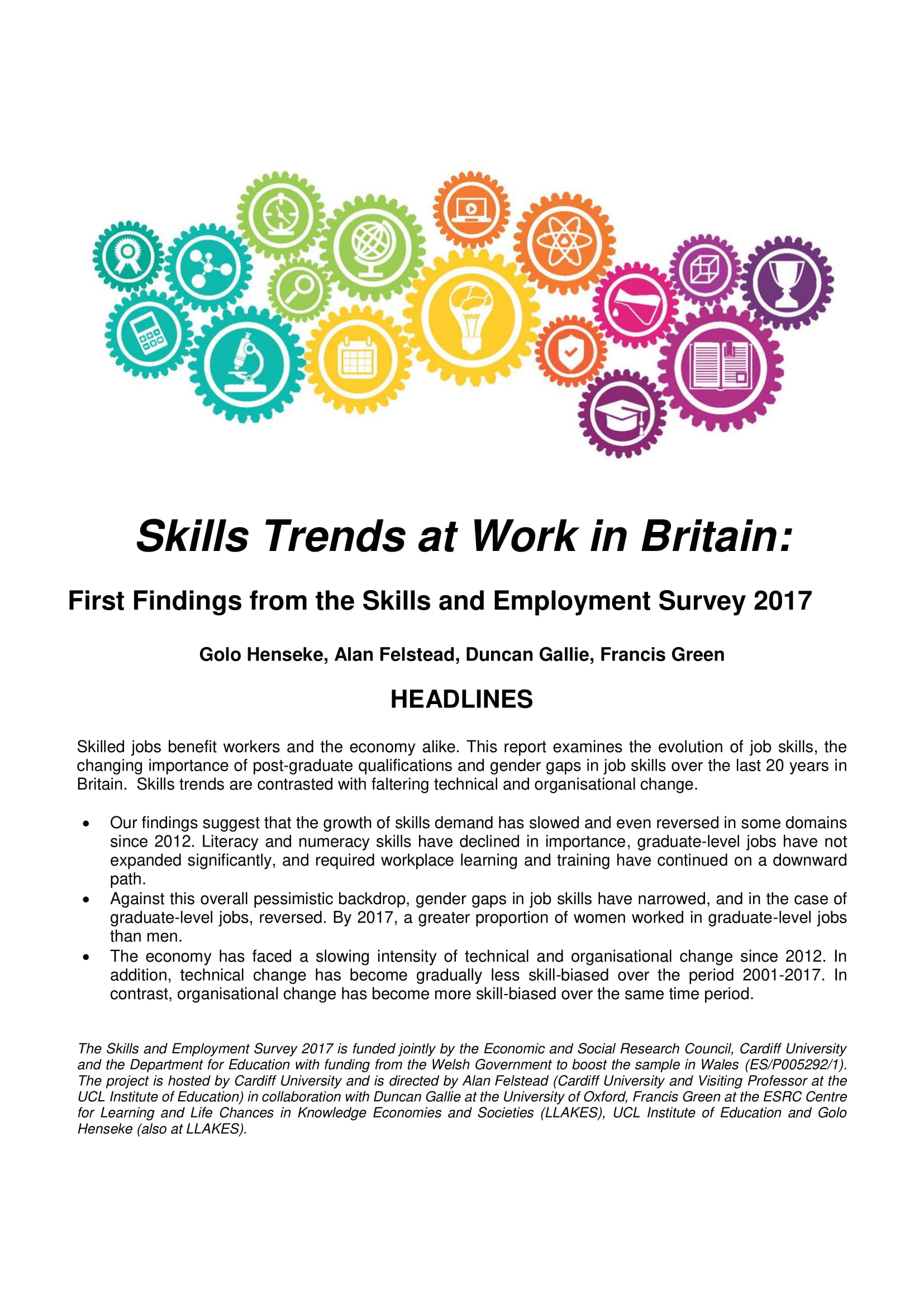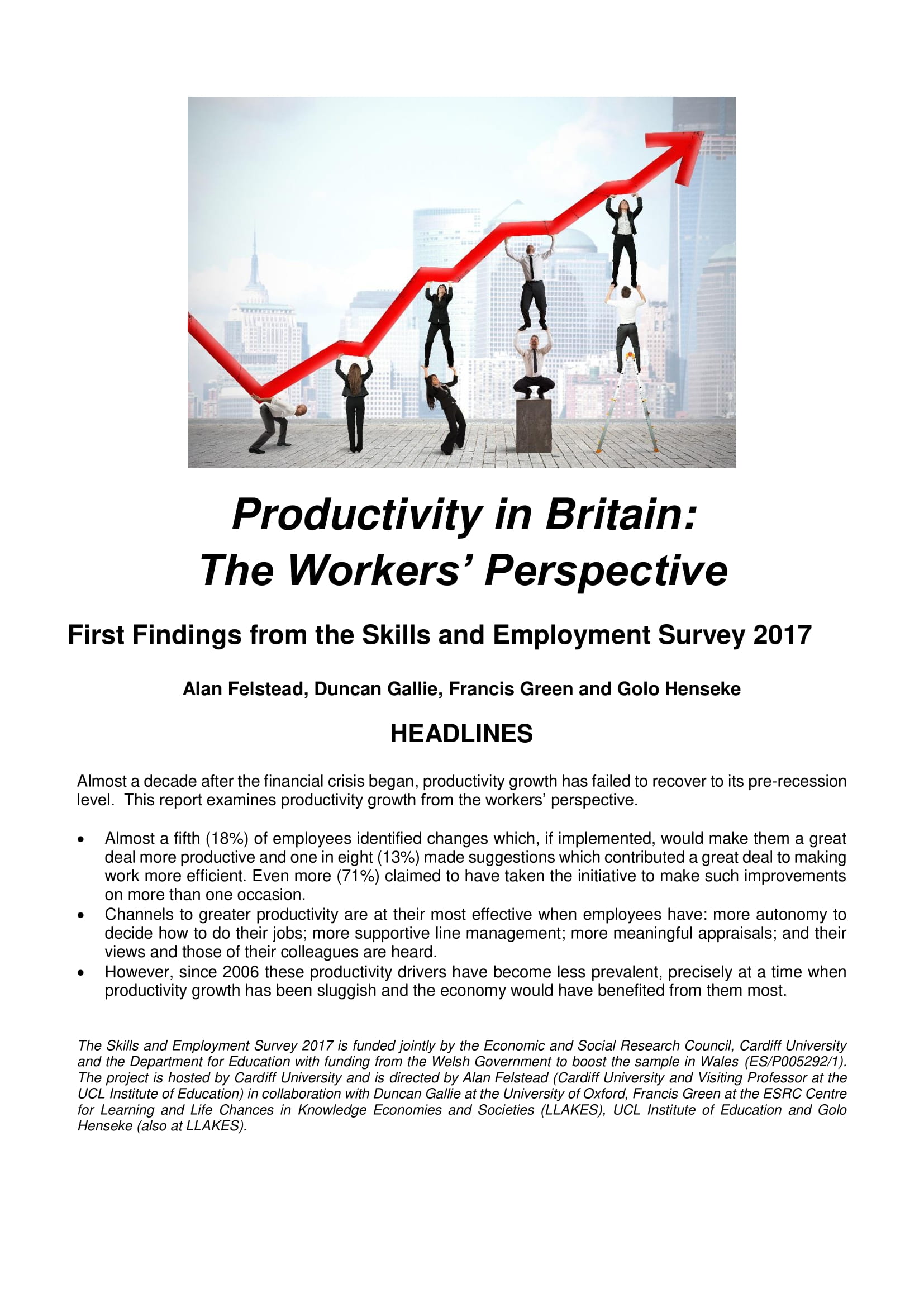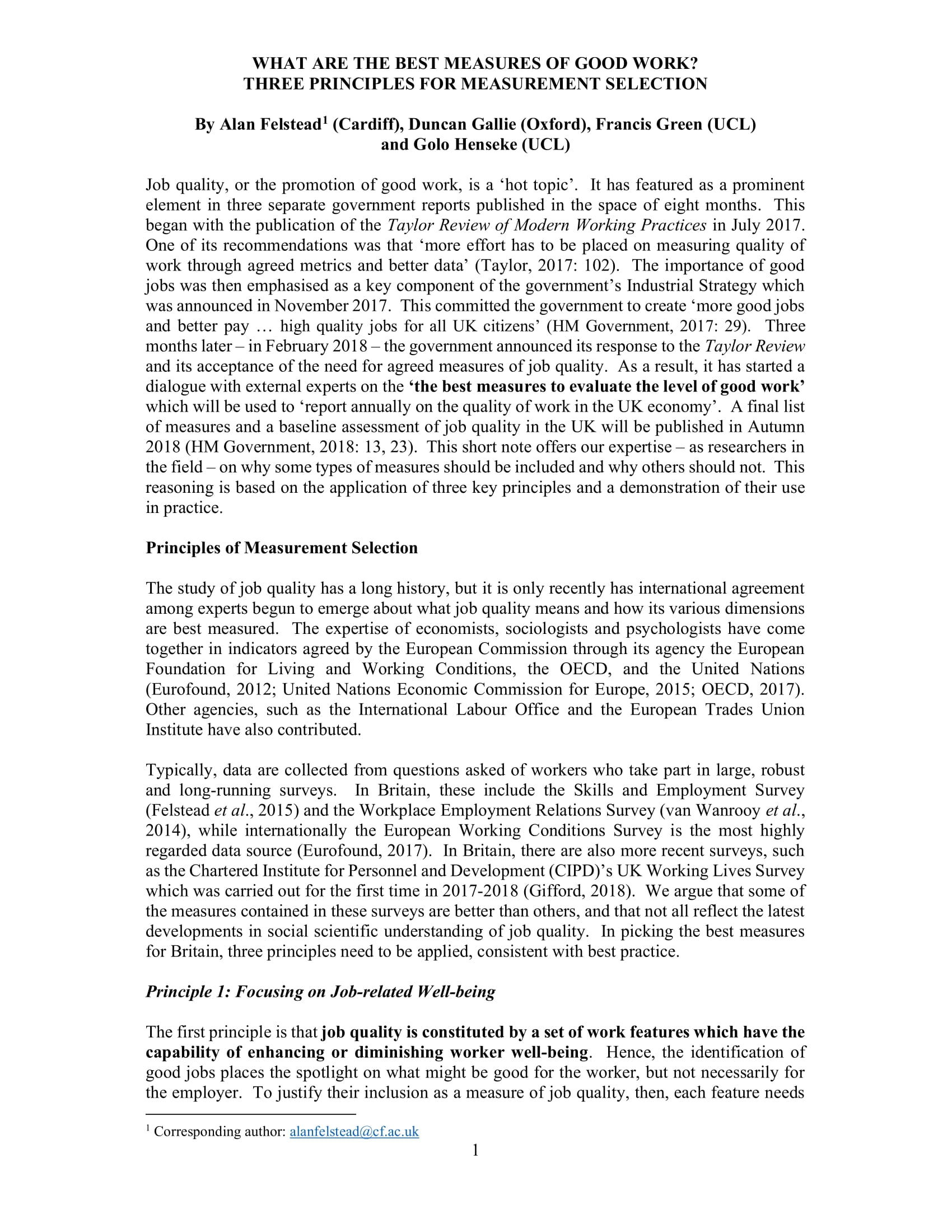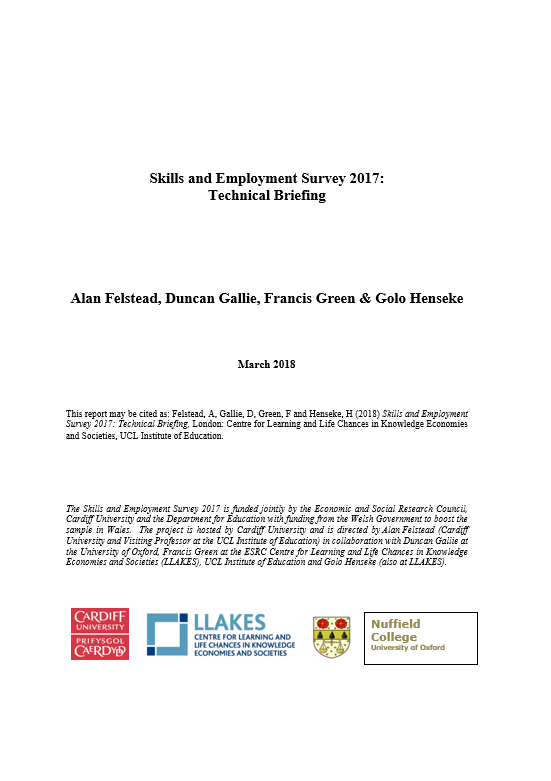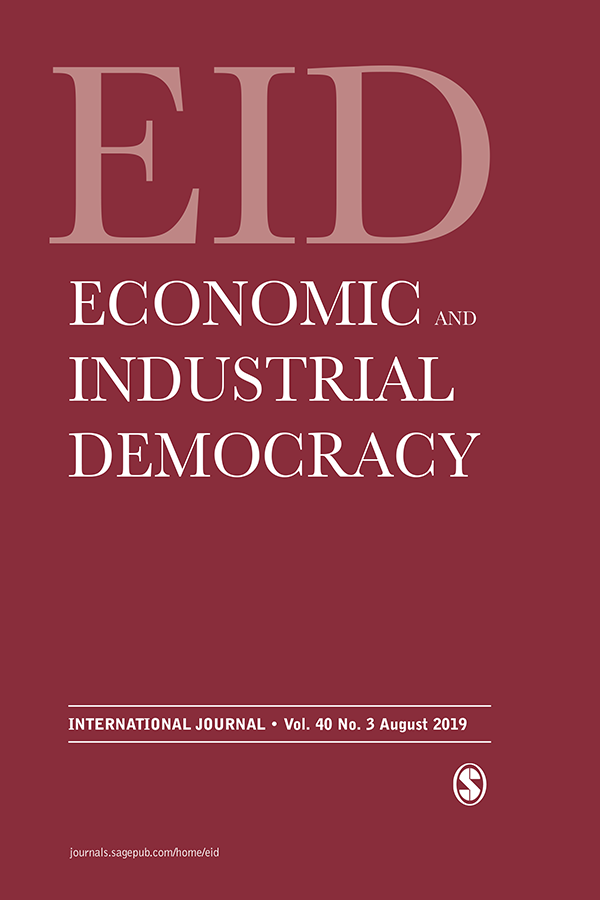Overview
The Skills and Employment Survey (2017) collects data on what people do at work, what skills they use and how they work.
The 2017 survey is the seventh in a series of studies which began in 1986. A total of 3,306 workers took part in the latest survey. These cross-sectional surveys provide the means to chart and explain the changing pattern of job quality and skills over time.
The series is a crucial part of the social science research infrastructure which has provided the basis for many publications.
The first findings of the 2017 survey were published in 2018 and are available as short reports as shown below. A series of refereed journal articles written by the research team have also been published on productivity, insecurity and approaches to measuring job quality such as the use of a quiz. Researchers wishing to analyse the data themselves should go to the UK Data Service where the Skills and Employment Survey series as well as the 2017 version are available for download.
Short Reports
Productivity in Britain: The Workers’ Perspective
Almost a decade after the financial crisis began, productivity growth has failed to recover to its pre-recession level. This report examines productivity growth from the workers’ perspective.
Skills Trends at Work in Britain
Skilled jobs benefit workers and the economy alike. This report examines the evolution of job skills, the changing importance of post-graduate qualifications and gender gaps in job skills over the last 20 years in Britain. Skills trends are contrasted with faltering technical and organisational change.
Fairness at Work in Britain
Employees’ views about fairness at work are of central policy concern for their implications for personal well-being and for the desire to raise worker motivation to achieve higher productivity. This report examines beliefs about fairness among British workers and some of the factors that were important in affecting these beliefs.
Work Intensity in Britain
This report shows how the intensity with which people work while doing their jobs has changed in recent years.
Participation at Work in Britain
Participation at work is an important determinant of personal well-being and is considered to be a key factor for enhancing motivation and productivity in technologically advanced economies. The report examines trends in different types of participation among British workers, some of the factors that were associated with them and the implications of participation for worker well-being and motivation.
Insecurity at Work in Britain
Insecurity at work can take several forms – the risk of job loss, the difficulty of securing a replacement job with an equally good one, anxieties about the job being downgraded, worries about being treated badly at work, and sudden and unexpected changes to hours of work. This report examines the scale and distribution of these insecurities, and how they have changed in Britain.

